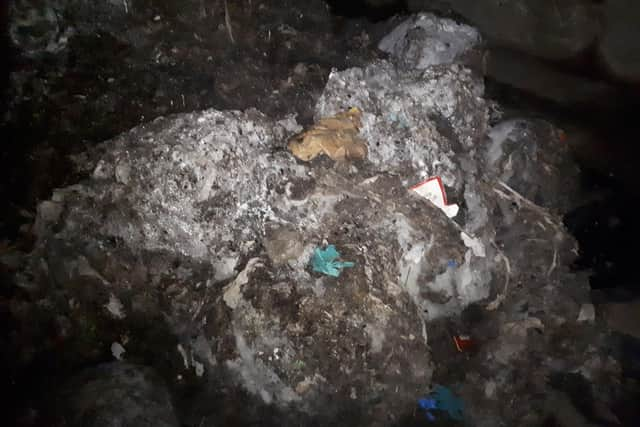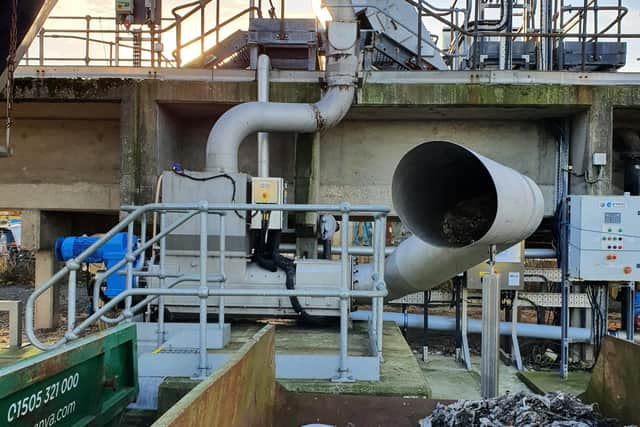Scots firm to trial system that turns toilet-blocking waste into eco-friendly water cleaner
Such waste is a major cause of blockages in sewage pipelines and often ends up spilling onto beaches and shorelines, blighting the environment and posing a danger to wildlife.
Water treatment works currently sieve out non-biodegradable solids, compress them into big blocks and send them to landfill.


Advertisement
Hide AdAdvertisement
Hide AdNow a pioneering system will see the material collected, roasted at high temperatures and turned into a charcoal-like substance that can improve the way sewage is treated and help tackle climate change.
The project is the brainchild of capital-based start-up Carbogenics, a spin-out company from the University of Edinburgh, which is beginning a year-long trial of the technique at Scottish Water’s Waste Water Development Centre in Bo’ness.
It involves putting the waste through a heating process known as pyrolysis to create a substance called biochar.


The biochar will then be added back into the wastewater treatment process to absorb contaminants and stimulate microorganisms to efficiently purify the water.
The hope is that by preventing the screenings from going to landfill and adding biochar to boost biological wastewater cleaning, treatment plants will require less energy to operate and so can reduce their carbon footprints.
The innovative scheme has got off the ground thanks to a £100,000 Smart:Scotland grant from Scottish Enterprise and if successful could see the technique rolled out across the world.
Ed Craig, chief executive of Carbogenics, said: “The problem of non-degradable materials that end up in the wastewater system is one that we feel has a more sustainable answer.
“By helping prevent these waste materials going to landfill, we are playing a part in helping Scotland demonstrate real green credentials.
Advertisement
Hide AdAdvertisement
Hide Ad“If this trial with Scottish Water goes well, the applications for this solution across the wastewater industry – not just in the UK but across Europe – could be immense.”
Tamsyn Kennedy, circular economy lead at Scottish Water, said: “We believe that research into biochar can broaden the opportunities for low-carbon and circular wastewater treatment and support a flourishing Scotland.”
A message from the Editor:
Thank you for reading this article. We’re more reliant on your support than ever as the shift in consumer habits brought about by coronavirus impacts our advertisers.
If you haven’t already, please consider supporting our trusted, fact-checked journalism by taking out a digital subscription.
Comments
Want to join the conversation? Please or to comment on this article.
